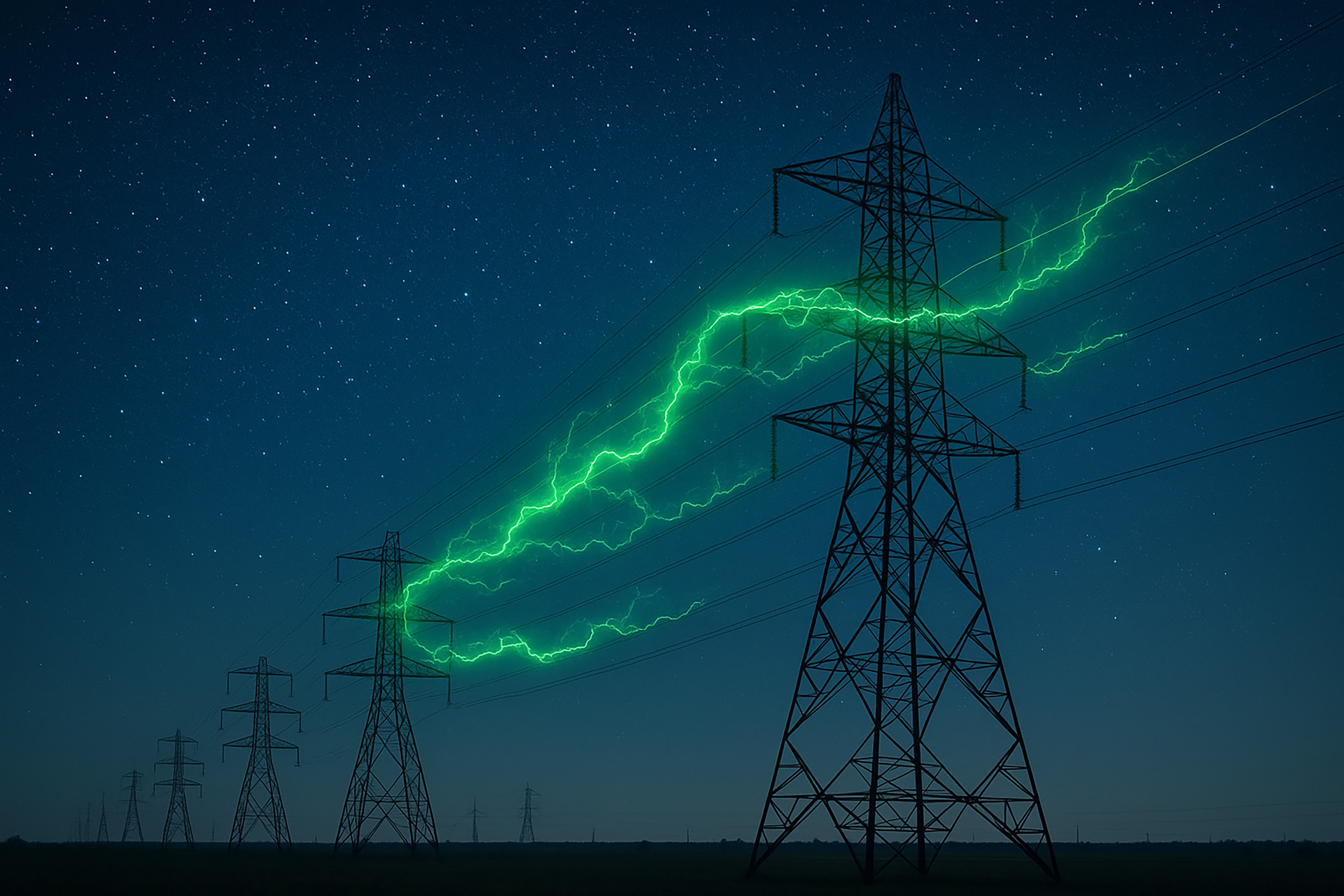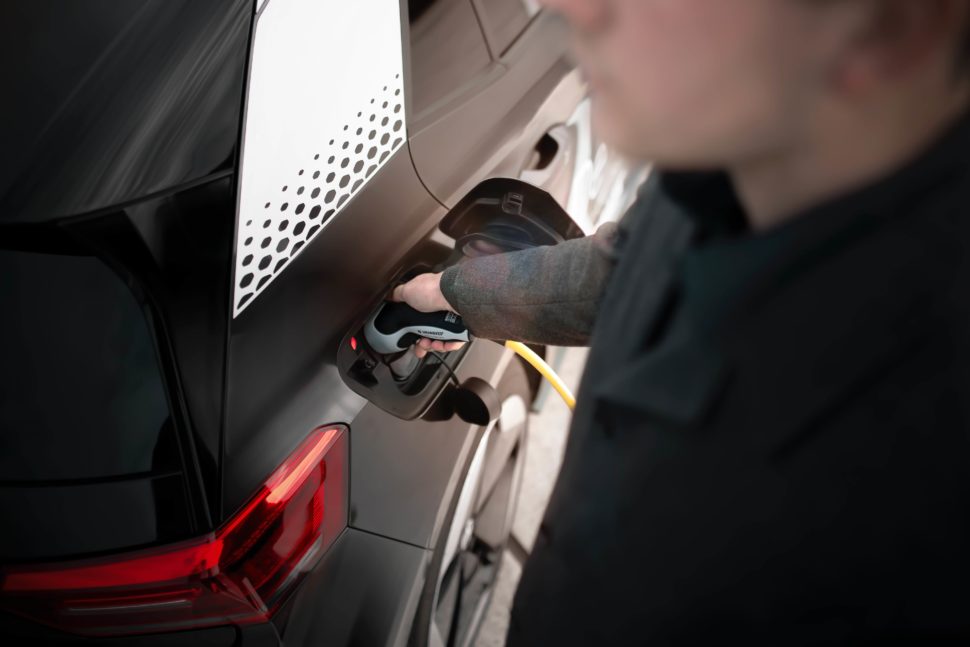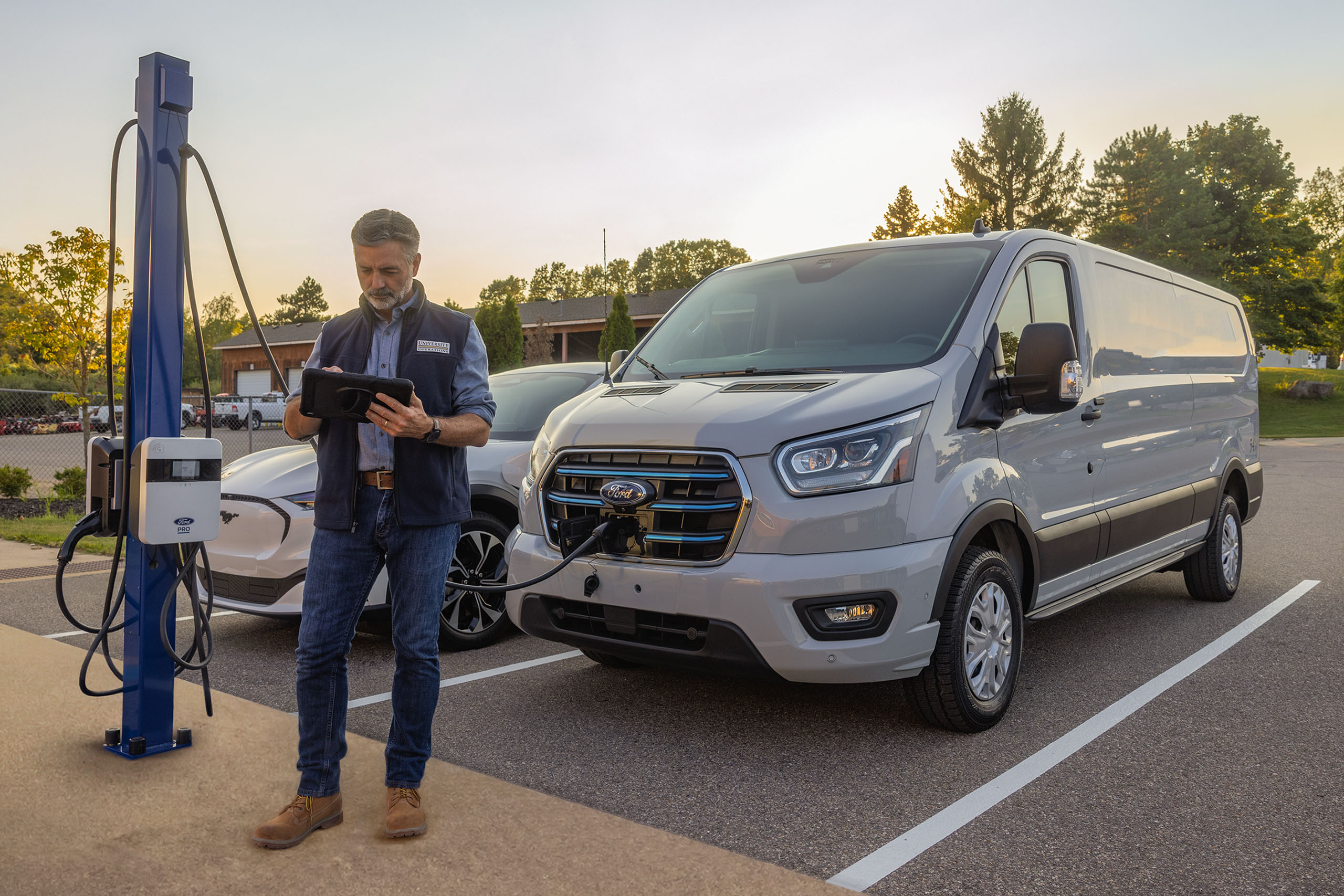

Instead, smart businesses start by identifying their objectives.
Ultimately, electrification goes beyond the installation of EV charger hardware to enhance brand perception. How does EV charging help your business increase revenue? It’s through the experience you offer potential customers.
Increase Revenue by Taking Advantage of Government Incentives
To encourage businesses to install EV chargers, the government has made it as easy as possible to take advantage of tax credits. Incentives can cover 100% of electric car charger installation costs.
Building EV Charging Solutions in Disadvantaged Communities
The Inflation Reduction Act of 2022 reinstated the tax credit for electric vehicle charging stations in an “eligible census tract.” According to the Internal Revenue Code Section 30C, an eligible census tract refers to a community that meets one of these criteria:
- The poverty rate is at least 20%.
- The median family income does not exceed 80% of the statewide median family income.
Businesses can receive up to 30% of electric car charger project costs, capped at $100,000 per charger. This benefit includes allocation of a proportion of electrical system upgrade costs to each charger.
That means if your business installs six chargers, you qualify for a $600,000 credit.
It can be difficult to determine if your business qualifies, especially if you operate in more than one location. There are more than 85,000 eligible census tracts in the United States, and zip codes often contain several tracts.
Future Energy’s consultants have developed systems and practices to assess our clients’ qualifications. The analysis is tricky, involving many data points that help determine eligibility.
Participating in the National EV Charger Network

Each state has its own distribution plan. Congress’s minimum requirements stipulate that NEVI funds are used for EV charger installation within one mile of a US interchange and not within 50 miles of another interchange.
Plus, the business must install at least four direct-current fast chargers (DCFC), each with a minimum of 100 kilowatts of charging capacity. Businesses are eligible to receive up to 80% of the project cost, capped at $500,000.
Future Energy helps our clients determine if they qualify and gets them to the front of the line for funding.
For example, we helped a global automotive manufacturer determine that 78 of its dealership franchises could be eligible for NEVI funds.
As an early EV adopter, the manufacturer enhances its brand as a hot spot for DCFC charging along US highways.
Beyond the two new federal programs, there are pools of money available at the state and local levels. Future Energy’s Financial Incentive National Database (FIND) tool helps our clients identify 99% of all available money for EV charging station installation.
Selling Unused Tax Credits
Under the Inflation Reduction Act, a business that can’t take full advantage of the available tax credits can sell them to another entity. Thus nonprofits or other entities that lack the “tax appetite” in that particular year can still profit from the credit available from the EV charging project.
Increase Revenue by Attracting and Retaining Customers
Much like a convenience store in a gas station, EV chargers help draw customers into your business. The EV charging station company ChargePoint found that EV charging increases customer dwell time by an average of 50 minutes.
Drawing Loyal Customers through EV Charging Solutions
Yet increased dwell time is only a small part of the reason EV charging installation helps businesses boost revenue.
Increasingly, EV charging stations are becoming a public expectation.
Say there are two competing grocery chains: one adopts EV charging solutions and one doesn’t. As consumer demand for EV charging continues to rise, the business that adopts EV charging now will have a competitive edge in the years to come.

Understanding the Value of EV Charger Availability
As EV use becomes more prevalent, drivers are looking for places outside the home to charge. Naturally, they prefer locations where they will be parked for a significant amount of time, such as the workplace or shopping mall.
In fact, 57% of drivers are willing to pay a premium to use a public charger, according to the Electric Vehicle Council.
Similarly, 58% of renters are willing to pay more to live in a place that offers EV charging, according to Multifamily Executive. Owners of multi-unit dwellings can attract tenants by offering EV charging stations.
Improving the Workforce by Offering EV Charging
As businesses compete to attract skilled workers in a tight job market, EV charging can help attract potential employees. Plus, Future Energy can help your business forecast the needs of your current workforce.
For example, a New York business surveyed its 400 employees and determined that 40 people drove electric vehicles. All wanted to work with Future Energy for EV charging solutions.
Future Energy asked a different question first: What is your vehicle plan for the future? We found that 200 employees had plans to drive an EV by next year, so we helped the client develop a new, proactive EV charging plan.
Increase Revenue by Promoting Your Brand and Forming Partnerships
Several sections of the Inflation Reduction Act offer major tax credits to buyers of electric vehicles.
How Dealerships Can Simplify EV Purchases
Dealerships can use tax credits to interest customers in the purchase of an EV.

Why Businesses Are Creating Partnerships
Dealerships and other business entities are looking to build partnerships in the creation of EV charging opportunities for customers. For example, a dealership and local grocery store can collaborate on constructing EV charging stations and creating a revenue-share model.
Municipal leaders may be willing to work with your business to facilitate the creation of a community network of EV chargers. For example, the city of Orlando worked alongside businesses and other stakeholders to develop its Electric Vehicle Readiness Policy.
How Your Business Can Create a Strategy to Integrate EV Charging
Future Energy specializes in helping businesses create an experience from their EV charger environments. We seek to help you protect and facilitate the needs of your brand and your business. Ultimately, the plan needs to integrate EV charging into this long-term strategy.
Increase Revenue by Working with Future Energy
Every brand and every business will need a unique solution to strategically integrate EV. Contact Future Energy today to find out more about how EV charging helps your business increase revenue.



